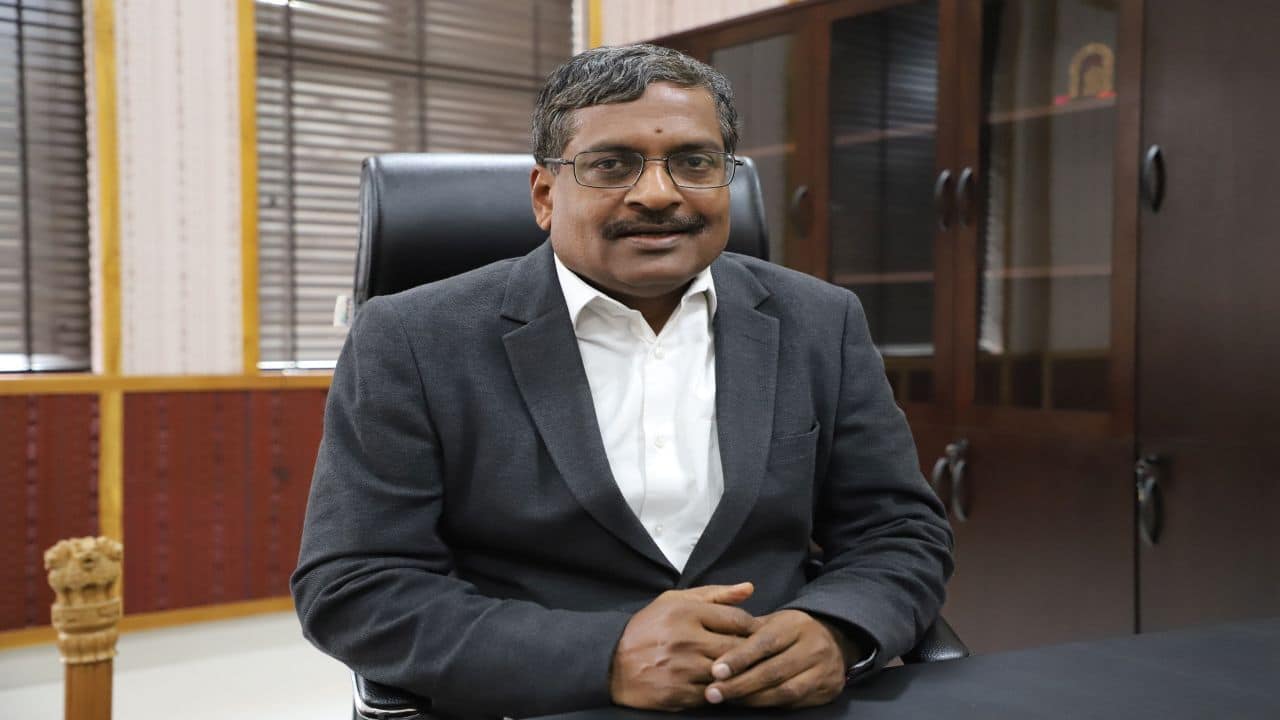National Education Policy: What industry experts have to say
From academic credits to skills-based learning to entry of global institutes, industry experts react to the new initiatives under the National Education Policy.
 Image: Shutterstock
Image: Shutterstock
The National Education Policy 2020 that was cleared by Prime Minister Narendra Modi-led Cabinet on July 29 seeks to bring a sea change in the Indian education system and make the curriculum of schools and colleges more skill-oriented.
There will not only be a change in the way a student studies but also in the way examinations are conducted and the final assessment is provided. Also, there will be a lot more flexibility to choose subjects in schools and colleges.
However, concerns remain about how it will be implemented. Moneycontrol brings you voices from across the education industry:
Malabika Sarkar, Vice-Chancellor, Ashoka University
Academic credits will be helpful
The Gross Enrollment Ratio of 50 percent is an important target and all universities must contribute to it. The initiatives announced under NEP 2020 should help achieve this target. The government-recognised multiple the entry and exit options at the undergraduate level will give more options to the youth. This, supported by an Academic Bank of Credit to digitally store academic credits, will go a long way in providing a favourable environment to students to plan their education.
Rustom Kerawalla, Chairman of Ampersand Group (owner of VIBGYOR Group of Schools)
Vocational learning to help school students
NEP 2020 lays special emphasis on Early Child Care Education (ECCE) and development by including a play-based multi-faceted curriculum. The universalisation of ECCE will lay the foundation for the development of every child and will be able to honour unique skill-sets at an early age.
The integration of co-curricular subjects at par will help students honour their hobbies and skills and make value addition in the areas of preference. Project-based learning, vocational learning at an early age, and learning of life skills and inclusion of technology will help a child realise ambitions, gain multi-dimensional knowledge and universal skills and lay the foundation for higher education.
Akhil Shahani, Managing Director, Shahani Group
 Akhil Shahani, MD, Shahani Group
Akhil Shahani, MD, Shahani GroupShould have been implemented long ago
NEP should have been implemented years ago to enable India's education system to catch up with that of other fast-developing nations in Asia. The focus on light government regulation, multidisciplinary institutions and creating equivalence of vocational and academic streams are welcome, but these have been a part of other countries' education models for years.
Also read: All you need to know about the National Education Policy
It would have been good to have some more innovative ideas implemented like recognition of pathway/twinning programmes with foreign universities, permission for for-profit firms to set up schools & colleges, allowing corporate CSR funding for primary research in universities and allowing universities to offer online degrees to outside their geographical jurisdiction. As education is a state subject, it is important for the central government to create a mechanism to ensure each state implements these new policies effectively.
Narayanan Ramaswamy, Partner and Sector Head - Education and Skill Development, KPMG in India
Skill-based learning to get a boost
NEP signals the end of ROTE and brings in assessments based on the application of core concepts, introduces skills from grade 6 onwards, enabling every child to have at least one skill at the end of school education. The emphasis on multidisciplinary education and flexibility of subjects is interesting and will help in broad basing the thinking for the next generation.
I feel that graded autonomy, single regulator, phasing out affiliation system in 15 years, special education zones, emphasis on language, multiple entry and exit will herald a transformation in Indian higher education.
Mahadeo Jaiswal, Director, IIM Sambalpur
 IIM Sambalpur Director Mahadeo Jaiswal
IIM Sambalpur Director Mahadeo JaiswalAllowing entry of global institutes is a welcome change
Allowing global institutes to set up campuses in India is also a positive move as it will increase competition because it will open up our education system and it will also help sustain high talent in the country as students don't have to move out to pursue education.
Changing the pedagogical structure from a 10+2 system to a 5+3+3+4 system is in line with international educational standards. Due to the small structure of our IIMs and IITs, despite having ample talent, they were unable to figure in the top 100 institutes of the world.
Allowing technical institutes to become multi-disciplinary will help IIMs and IITs to start other departments like medical etc and make their size bigger and allow them to admit more students. This will enable them to compete with the elite institutes of the world and become at par with them in the coming years. Diversification makes education more complete and helps increase intellectual outcome. Overall, the changes have been made according to the global system of education. This will also help attract foreign students to India and help the economy as well.
Manoj K Arora, Vice-Chancellor, BML Munjal University
Build your own degree
Universities need to be research intensive, enterprising and multi-disciplinary. NEP talks about the importance of liberal arts and that curricula needed to be hugely flexible. Multiple exit/entry and the credit bank will give students a lot of flexibility in getting educated and earning degrees while they are working.
We are moving towards the concept of building your own degree. We believe that we as a university and the country as a whole are going to immensely benefit, and look forward to its fair implementation.
Mayank Kumar, MD and co-founder, UpGrad
 Mayank Kumar, MD and co-founder, UpGrad
Mayank Kumar, MD and co-founder, UpGradEdtech players will get a boost
Hopefully, once the NEP extends the RTE to 18 years, it'll be the first step to democratize higher education as well. The entire premise of increasing GER to thereby increase the GDP of the country will fall flat if the now 'educated' 18-year-olds are not 'employable'. So, this will be the much-awaited and much-needed first step towards the larger goal of creating a stronger Bharatiya work-force.
Given the contextuality of the current situation when the NEP has gotten approved, I expect a significant push for online education, as right now 'education' and 'online education' are synonymous. The push would invariably lead to mushrooming of more edtech players in the already crowded-sector, allowing choices for the learner and fueling a price war for the players. This is where 'quality', one of the foundational pillars the draft NEP is based on, will drive value & outcome for the learners.
Sumeet Jain, Co-founder and Higher Education expert at study abroad platform Yocket
Which foreign university will get entry into India?
Under the NEP the world's top 100 foreign universities will be facilitated to operate in India through a new law. According to the HRD Ministry document, listing salient features of policy, such (foreign) universities will be given special dispensation regarding regulatory, governance, and content norms on par with other autonomous institutions of India.
This is a big announcement but not very clear. How are they going to decide the top 100 universities? Which list will they be using it? What are the parameters to choose this 100 universities? This certainly can be a great opportunity for universities to open a campus in India. It will be very important to see how easy it is for the universities to set this up. Many universities would like to open up options where they can provide students with multiple campus courses. This could make studying in foreign universities more accessible. I hope there are some check and balances which ensure that these universities ensure quality in India. We should look at skilling our youth with the help of these existing foreign universities.
Sridhar Rajagopalan, co-Founder and chief learning officer, Educational Initiatives (edtech firm)
Mother tongue as medium of instruction is welcome
Education should in mother tongue or local language at least till class 5 after which should be in English- this approach has a lot of benefits. Pedagogical research has established beyond much doubt that children learn best if they learn in their mother tongue (or local language) in the primary classes.
This does not mean that children should not learn English. It only means that English should not be the medium of instruction in the primary years. The medium of instruction should be the language that is most prevalent in the child's surroundings.
Original Source: https://www.moneycontrol.com/news/business/economy/national-education-policy-what-industry-experts-have-to-say-5620791.html